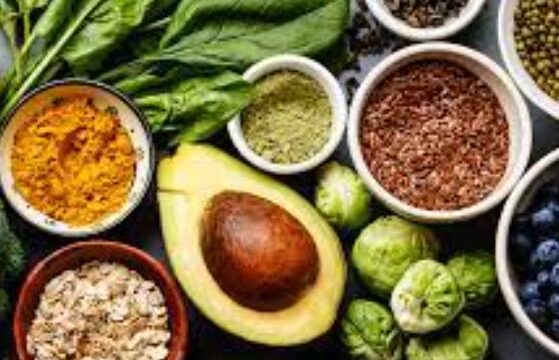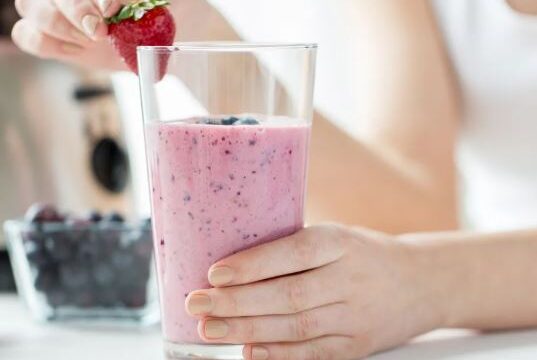Study groups are an excellent way to share ideas, review materials, and motivate one another.
Yet anyone who has sat around a table with classmates or colleagues knows that energy levels can rise and fall quickly.
The right snacks can make a huge difference, keeping minds alert and conversations flowing.
Choosing snacks that support focus means selecting foods that provide steady energy, nourish the brain, and avoid sudden crashes that can leave everyone distracted. In the United States, where study sessions often stretch late into the night, having the right spread of food can set the tone for success. When planning snacks for a study group, it helps to think about balance. The best choices are those that combine protein, fiber, and healthy fats with natural sources of carbohydrates. This blend keeps blood sugar levels steady, which in turn supports concentration. Sugary treats may give a quick burst of energy, but they are often followed by sluggishness. A smarter approach is to lean toward whole, minimally processed foods that fuel the brain in a consistent way. One of the most dependable options is a mix of nuts and seeds. Almonds, walnuts, cashews, pumpkin seeds, and sunflower seeds all contain nutrients that support mental clarity. Nuts provide protein and healthy fats, while seeds often contain minerals like magnesium and zinc, which play a role in cognitive function. Offering a small bowl of these during a study session gives everyone a crunchy, satisfying snack without weighing them down. For variety, try mixing them with a handful of dried fruit such as raisins or cranberries. The natural sweetness adds flavor while still keeping the snack light. Fresh fruit is another excellent choice. Apples, oranges, grapes, and berries can be washed and set out for easy grabbing. Fruit contains natural sugars paired with fiber, which slows digestion and helps maintain steady energy. For those who want something more filling, pairing fruit with a protein-rich dip like yogurt makes it even more effective. Sliced apples with a small side of peanut butter or almond butter, for example, bring both satisfaction and nutrients that support sustained focus. Vegetables are often overlooked during study groups, but they can be refreshing and energizing. Baby carrots, celery sticks, cucumber slices, and bell pepper strips provide crunch without heaviness. Serving them with a simple hummus dip or a light guacamole gives an added boost of flavor and protein. These combinations are especially helpful in longer sessions, when heavier snacks might make it harder to stay attentive. Whole-grain options are also valuable for maintaining focus. Crackers or pita chips made with whole grains provide a slow release of energy, unlike refined white flour snacks that can cause a dip in alertness. Paired with cheese, hummus, or avocado, they become both tasty and sustaining. Popcorn can also be a great whole-grain snack if prepared in a light way. Air-popped popcorn with a sprinkle of seasoning is easy to share and satisfies the desire to munch without being overly heavy. For those who prefer something more on the sweet side, dark chocolate in moderation can be a smart addition. Dark chocolate contains antioxidants and a small amount of caffeine, which can give a gentle lift in alertness. Choosing varieties with a higher cocoa content and less added sugar ensures that the benefits remain without leading to an energy crash. A few squares of dark chocolate paired with nuts or fruit can feel indulgent while still supporting the goal of focused studying. Another category of helpful snacks includes yogurt and cottage cheese. These provide protein and can be paired with toppings like fruit, nuts, or granola. The creamy texture is comforting, and the protein helps stabilize energy. For group settings, small individual servings are convenient and reduce mess. If refrigeration is an issue, shelf-stable yogurt drinks or alternatives made from plant-based ingredients can be used instead. Hydration also plays a role in maintaining focus, so it is wise to pair snacks with drinks that help rather than hinder concentration. Water is always the best choice, but lightly flavored sparkling water, herbal teas, or fruit-infused water can make staying hydrated more appealing. Avoiding heavily caffeinated or sugary drinks prevents the spikes and crashes that often interfere with steady attention. A warm cup of green tea, for example, offers a gentle boost along with antioxidants that benefit the body. Another option to consider is trail mix. A homemade version allows full control over the ingredients. Mixing together nuts, seeds, dried fruit, and even a few dark chocolate chips creates a snack that is both satisfying and energizing. Unlike prepackaged versions that can be loaded with sugar and salt, a homemade mix keeps the focus on balance. Placing small portions in separate containers makes it easy for group members to take a serving without overindulging. In recent years, smoothie bowls and snack-sized smoothies have become increasingly popular during study sessions. A blend of frozen fruit, leafy greens, and a protein source like Greek yogurt or a plant-based milk provides a nutrient-rich option that feels more like a treat. Smoothies can be prepared ahead of time and kept chilled, making them easy to serve when the group gathers. Of course, while snacks play an important role, the atmosphere of the study group matters as well. Providing a variety of options allows everyone to choose what works best for their own body. Some people may prefer lighter options like fruit and vegetables, while others need a little more substance to stay focused. The key is to create a spread that is colorful, appealing, and balanced. It is also worth remembering that the act of sharing food can strengthen group connection. Offering healthy snacks not only fuels the brain but also builds a sense of care and community. When everyone feels supported, the study session becomes more effective and enjoyable. Food has the power to create moments of pause, giving group members a chance to reset before diving back into discussions or problem-solving. In the United States, where study groups are common in schools, colleges, and workplaces, the choice of snacks can have a subtle but powerful impact. By leaning toward whole foods, avoiding excess sugar, and including a mix of textures and flavors, study leaders and participants can create an environment that encourages sharp thinking and steady energy. In the end, the best snacks for supporting focus during study groups are those that provide nourishment without distraction. Nuts, fruits, vegetables, whole grains, yogurt, dark chocolate, and light homemade mixes all contribute to balanced energy and mental clarity. Hydrating drinks keep minds sharp, while the act of sharing food fosters connection. With a little planning, study groups can move beyond quick convenience foods and instead offer snacks that help everyone stay engaged, alert, and ready to learn together.






